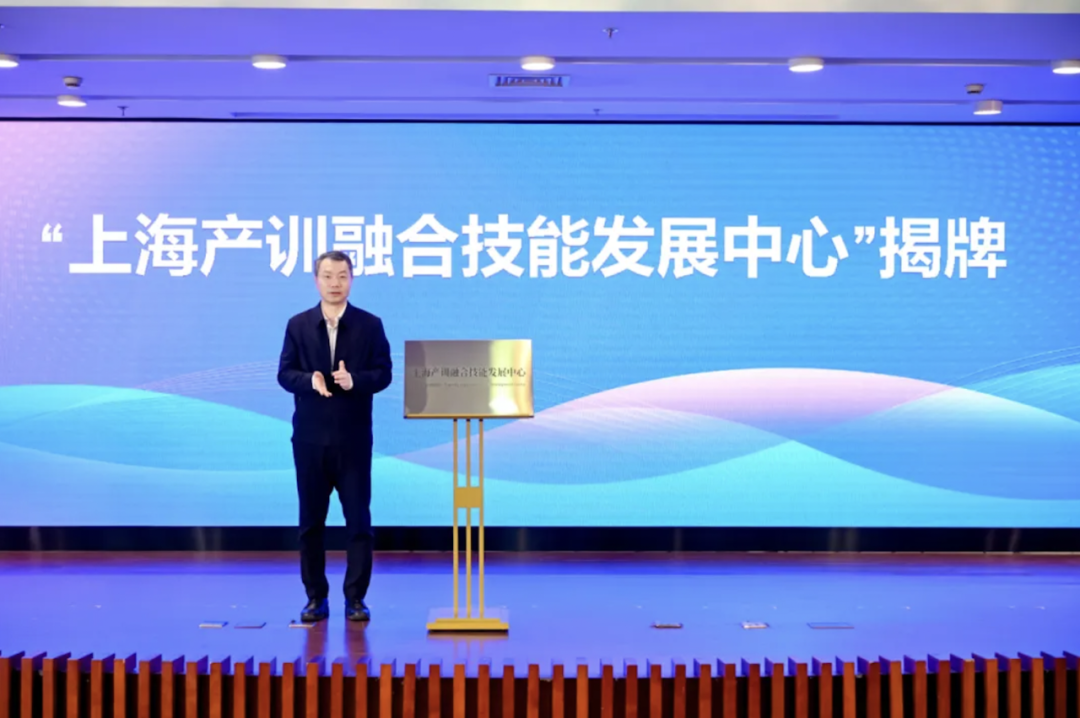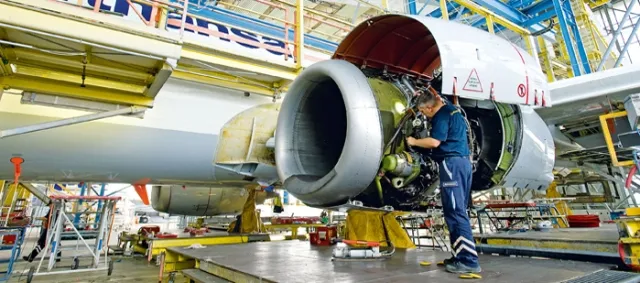Linking the supply and demand of skills training, the Royal Aeronautical Society China Representative Office signed an agreement with the Shanghai Industry-Training Integration Skill Development Center


In order to thoroughly implement General Secretary Xi Jinping’s important instructions on “improving the adaptation mechanism between talent training and economic and social development needs, and building a joint innovation platform between schools, enterprises and local governments”, and actively implement the deployment requirements of the Municipal Party Committee and Municipal Government on “deepening the integration of industry and education, and vigorously attracting and nurturing high-level training institutions”, the “Shanghai Industry-Training Integration Skill Development Center” was officially established on April 30. Shanghai Vice Mayor Chen Jie attended the unveiling ceremony of the “Shanghai Industry-Training Integration Skill Development Center” and the signing ceremony of the “Industry-Training Integration Ecological Community”, and unveiled the center.

The Royal Aeronautical Society of the United Kingdom, as the only representative of an overseas institution , signed a contract with the newly established Shanghai Industry-Training Integration Skills Development Center to promote the implementation of scarce skills training programs in the fields of high-end aviation manufacturing and aviation maintenance , and focus on cooperating to explore the comparative recognition of skill certificates issued by the society .
The society’s first project will pilot the introduction of a “ Modern Apprenticeship ” certification program with Shanghai Boeing Aviation Modification and Maintenance Engineering Co., Ltd. to enhance the internationalization level of skilled personnel and professional recognition on an international scale.

The Shanghai Industry-Training Integration Skill Development Center is the city's first high-level, comprehensive skill talent training platform explored and established in high-quality human resources service agencies under the strong guidance of the Shanghai Municipal Human Resources and Social Security Bureau and the active support of Shanghai Foreign Service (Group) Co., Ltd. It promotes the implementation of key industries and in-demand skill training projects in the city, such as artificial intelligence, high-end housekeeping, elderly care, urban tourism recommendations, and intelligent manufacturing.
The center will aim to "link the supply and demand of skill training" and efficiently pool resources from the government, enterprises, and colleges to achieve comprehensive functions such as skill development display, policy research, talent identification, skill training, and information construction, providing workers with "one-stop" training and employment services.

The center is located at the China (Shanghai) Public Training Base for Entrepreneurs at No. 200 Guoding East Road, Yangpu District. The first phase of the center is planned to cover an area of over 1,000 square meters and will have comprehensive functions such as skill development display, policy research, talent identification, skill training, and information construction.
The center will adhere to the idea of "combining physical operation with virtual campus, integrating industrial development with training and employment, combining large-scale with personalized, and taking into account both domestic and foreign" to build an ecological community of production and training integration for high-level skilled talents with government guidance, enterprise as the main body, school-enterprise collaboration, and multi-party participation:
1. Establish mid-level operation platforms and grassroots training networks in key areas such as major industrial clusters and the five new cities, so that skills training can better enable industrial upgrading, regional development and employment assistance
2. With the innovation platform as the hub, promote the deepening of cooperation among chain-leading enterprises, vocational schools and social organizations, and promote the co-construction and sharing of resources such as teaching staff, textbook question banks, and practical training equipment.
3. Explore the comparative recognition of foreign skill certificates to improve the internationalization level of skilled personnel.





